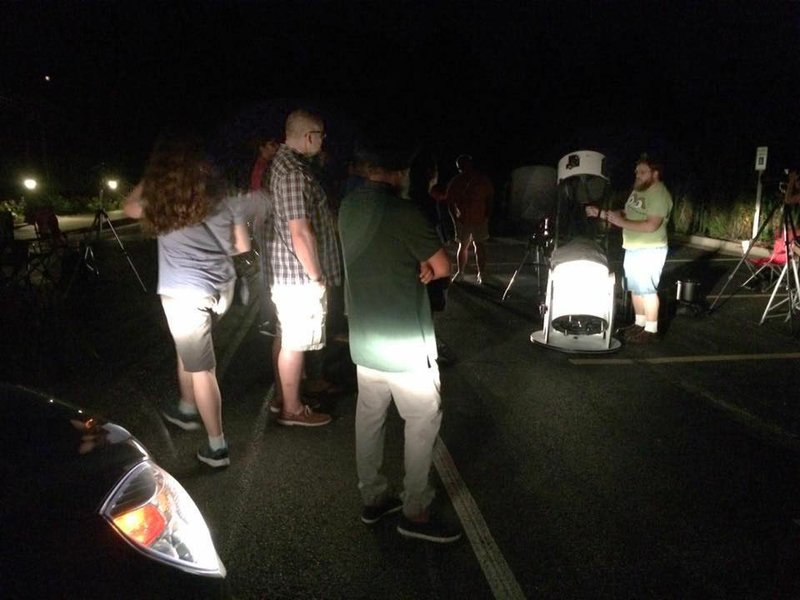ROGERS -- Visitors can get starry-eyed when they attend astronomy nights at Hobbs State Park-Conservation Area.
The events are a joint effort of the Sugar Creek Astronomical Society and the park, whose staff members see the cooperation as, well, heavenly.
Hobbs astronomy night
The next astronomy night at Hobbs State Park-Conservation area is Dec. 2.
The program “How to Buy a Telescope” begins at 4:30 p.m. in the visitor center. Night sky viewing starts after the program.
Astronomy nights are free. For more information, call the visitor center, 479-789-5000. The visitor center is on Arkansas 12, one-quarter mile east of War Eagle Road.
Source: Staff report
"This has to be an example of one of the most successful long-term partnerships between an Arkansas state park and the private sector," said Steve Chyrchel, interpretive naturalist at Hobbs. Astronomy nights routinely attract more than 100 stargazers, Chyrchel said.
The average attendance in 2016 has been 177. A crowd of 280 went to the park for one of the free nights under the stars and planets. Astronomy nights have been held for seven years.
Hobbs, east of Rogers, provides the venue, and the Astronomical Society presents the event. Before dark, society members give a program inside the visitor center. Then activity shifts outdoors to view stars, planets, galaxies and more through telescopes society members set up in the parking area.
The next astronomy night begins at 4:30 p.m. Dec. 2.
Once everyone is situated outside, all lights are turned off. Eyes become acclimated to the darkness, Chyrchel said. Stargazers may carry a flashlight if the beam end is covered by a red balloon.
"Even on rainy nights, people still come out for the program. We get a lot of repeat customers," Chyrchel said. A different program is presented at each astronomy night. The length depends on the interest of the crowd, he added.
Katherine Auld, president of the Astronomical Society, said the wonders of the heavens account for the program's popularity.
"The night sky is fascinating, and people want to know about it," she said.
Viewing celestial objects that are light years away can bring powerful reactions.
"A couple of times, we've had people, when they look through a telescope for the first time, it brings tears to their eyes," Auld said.
One of the telescopes is particularly powerful. It was donated to the park, sent off for repair and is now in new condition.
"You put this thing on Saturn, and you can tell it's one powerful telescope," Chyrchel said.
Viewing the night sky is good during winter, Auld said, because the air is crisp with low humidity. The sky is very clear. Stargazers just need to bundle up if it's cold.
People of all ages attend the events, Chyrchel said. Scout groups are common.
Astronomy nights benefit the park and the society, Chyrchel said. They bring people to the park, society members share their celestial passion, and stargazers drive home with a better understanding of the night sky.
Metro on 11/24/2016
